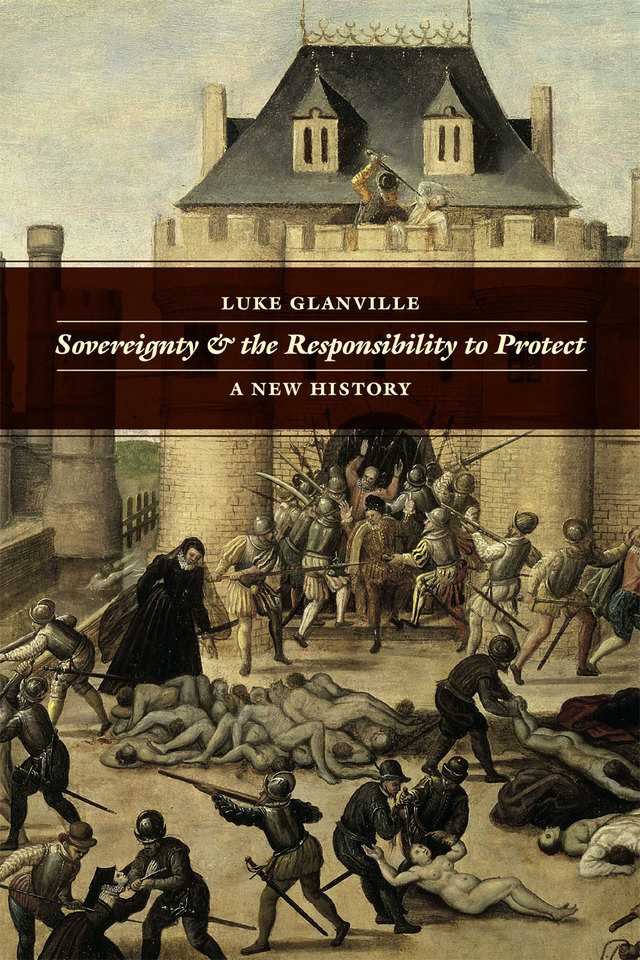
Book review: Sovereignty and the Responsibility to Protect: A New History. Luke Glanville. University of Chicago Press (December 2013). 304 pages. R$ 39,58 (www.amazon.com.br)
Published in: Cooperation and Conflict October 26, 2015 0010836715610871
http://cac.sagepub.com/content/early/2015/10/26/0010836715610871.extract

The conventional narrative of sovereignty told in the discipline of International Relations used to be that it was established at or around the Peace of Westphalia in 1648, and that for many centuries, its meaning remained the same. Sovereignty practically entailed the absence of accountability until the 20th century, when it was increasingly challenged by largely Western demands of democracy and human rights. The idea of the “Responsibility to Protect” (R2P) was therefore seen as a radical departure from the traditional interpretation of sovereignty, making it conditional on a government’s capacity and willingness to protect its own population.
Along with a growing number of researchers over the past years, Luke Glanville disagrees. Questioning the traditional assertion that sovereignty used to be unconditional, he argues that sovereignty entailed responsibility since it was first articulated in the sixteenth century, and that the notion of sovereignty as a “license to kill” is both recent and, most importantly, was never uncontested.
This does not mean that sovereigns could always be held answerable to the people. Rather, they were conceived to be responsible for the people and answerable to God. Glanville points to Hugo Grotius and Vattel, two of the many theorists who thought it was justified to wage war to hold to account sovereign princes who acted tyrannically and oppressed their own people. Despite the differences, Glanville sees these articulations as precursors of today’s “Responsibility to Protect” principle.
The author concedes that “while notions of externally enforceable sovereign responsibilities for the protection of populations were to some extent being suppressed by evolving sovereign rights to self-government and non-interference within Europe in these years, the understanding that sovereignty entails responsibilities was to be clearly found in the relations between European international society and the non-European world.” Put differently, European rulers usually enjoyed unconditional sovereignty, while Europeans could intervene outside of Europe in the name of protecting local populations.
What led to the rise of unconditional sovereign rights and the principle of non-intervention? According to the author, it can largely be explained by the enduring memory of humiliation and oppression suffered by non-Europeans during imperialism, when European powers blatantly and systematically misinterpreted the rules of the game valid until then. Liberal ideas helped to end the slave trade, but they were also used to justify colonialism. One important consequence was the UN Charter, where self-determination and freedom from external interference were unambiguously established. As former colonies gained their independence, they – quite understandably – recognized sovereignty as a shield against future interference.
During the Cold War, even large-scale human killing (such as in the context of Bangladeshi independence) elicited few reactions. Yet it would not last long, the author explains, until the individual-rights dimension, in tension with unconditional sovereignty from the start, would lead advocates to argue that some compromise between the two should be found. This was particularly the case after the genocides in Rwanda and Kosovo in the 1990s.
Sovereignty and the responsibility to protect: A new history is an interesting attempt to recast the history of sovereignty. One limitation is that Glanville’s argument about the historical limitations of sovereignty is not entirely new – several writers have made the point before. As early as 1996, Biersteker argued that the modern state system was not based on some timeless principle of sovereignty, but on the production of a normative conception which links authority, territory, population, and recognition. At the same time, Glanville is right that the idea of unconditional sovereignty still appears in many introductory textbooks.
The author’s findings directly lead to concrete policy recommendations: He writes that critics of the responsibility to protect should “refrain from casting socially and historically contingent sovereign rights as timeless and natural – and therefore beyond question.” The present-day ethical debate, the author insists, should be reframed by “confronting the reification of the supposed “traditional” meaning of sovereignty and by refuting the claim that the idea that sovereignty is a new and perhaps either dangerous or welcome challenge to this timeless definition.” While that is true in principle, he is unlikely to reduce fears of those in the Global South that continue to be skeptical about Western-led military intervention, as in the aftermath of the Libya campaign, heavily criticized by the BRICS countries for using Resolution 1973 as an excuse for regime change.
Glanville recognizes this problem and writes that the “imperial legacy poses a particularly acute ethical challenge for advocates of R2P today, and that most supporters “fail to grapple” with the problematic legacy of European imperialism. “The blindness of 19th century liberal thinkers to the abuses and injustices of European imperialism should give pause to anyone enthusiastically advocating the international enforcement of liberal principles today.” This is true and particularly important because the general pattern of Western powers intervening in non-Western countries still remains.
The author’s analysis thus makes an important contribution to the debate, shedding light on a historical perspective that is often overlooked in the day-to-day debates about the responsibility to protect.
Read also:
The BRICS and the Future of R2P: Was Syria or Libya the Exception?
West Africa’s contribution to R2P








